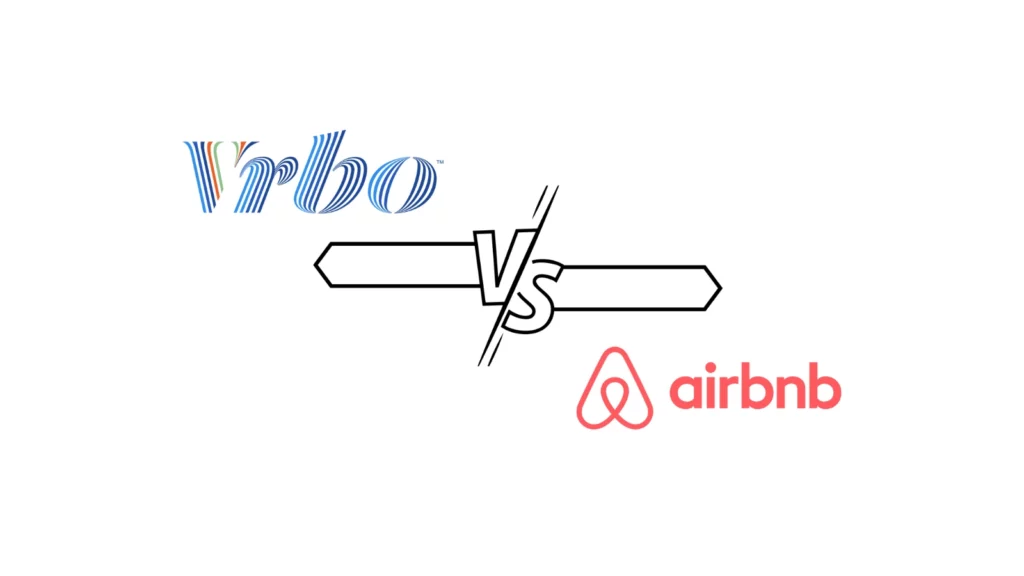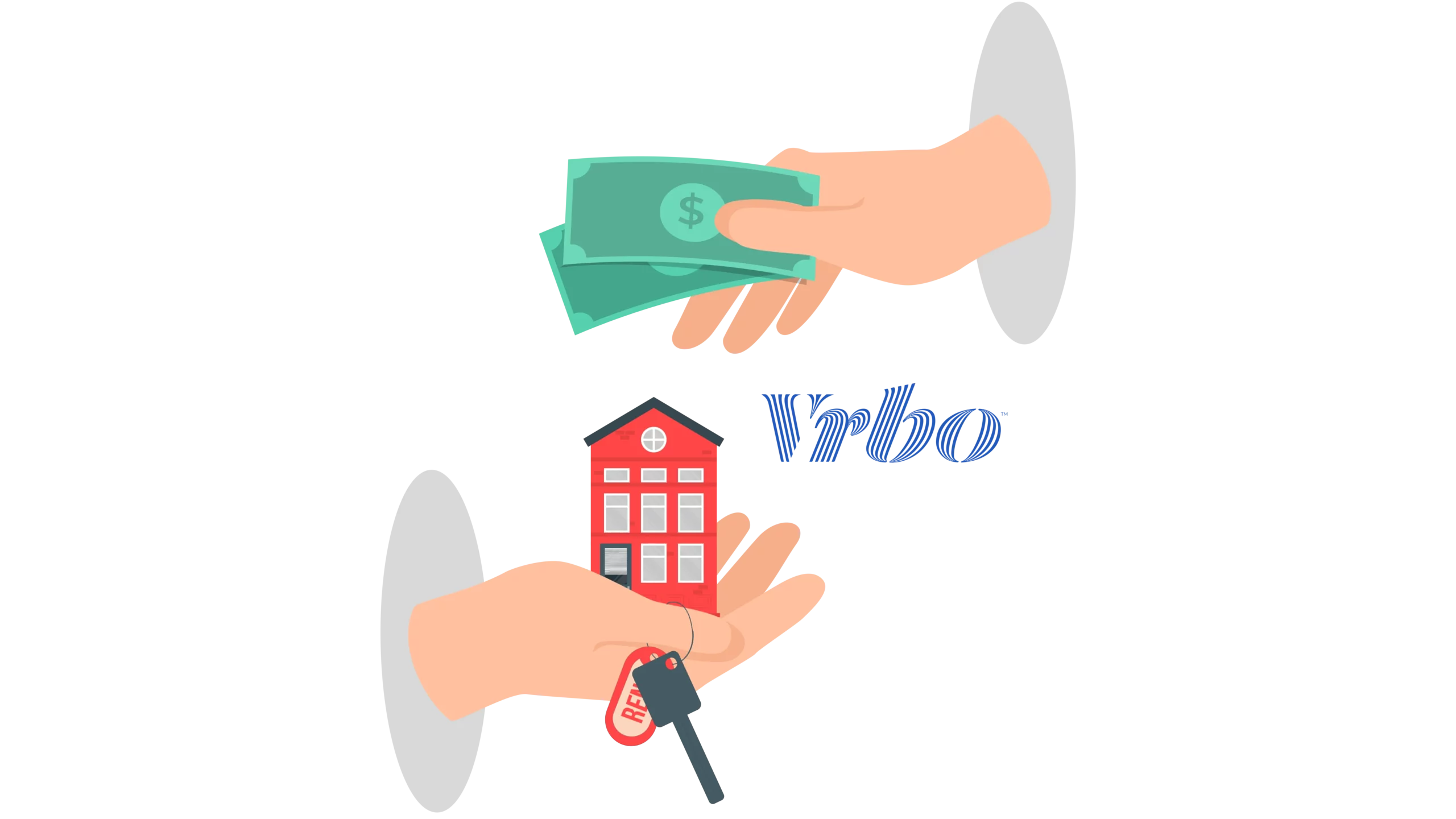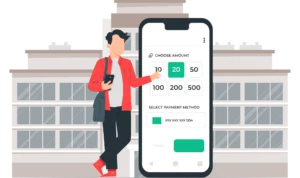Updated: October 21, 2024
Running a successful vacation rental requires understanding Vrbo host fees and how they affect your profits.
Vrbo makes listing your property simple, but its fee structure needs to be clarified. Many hosts struggle to maximize their earnings because they don’t fully grasp how these fees impact their income.
Whether new to Vrbo or an experienced host, this guide will help you make more money from your listing.
What Are Vrbo Host Fees?
Vrbo charges fees to keep its business running smoothly and help hosts and guests. These fees cover two main things: a commission for using the platform and a processing fee for handling payments.
By paying these fees, hosts can list their properties on a popular site with millions of users. They also get help with payments and customer support. This makes managing rentals easier for hosts.
Vrbo uses the money from fees to improve its website, handle bookings safely, and offer round-the-clock help. While hosts pay for these services, they benefit from more potential customers and easier property management, which can lead to more bookings and less hassle for hosts.
An Overview of Vrbo’s Fee Structure
Vrbo provides two main fee structures for hosts: pay-per-booking and an annual subscription.
1. Pay-Per-Booking Model
Under this model, Vrbo charges:
- Commission Fee: A 5% commission on the total booking amount, which includes the rental rate and any extra fees (like cleaning or pet fees). For example, if a rental is priced at $100 per night with a $50 cleaning fee, the commission would be 5% of $150, totaling $7.50.
- Payment Processing Fee: A 3% fee on the total amount received from guests, including taxes and refundable deposits. If the total payment is $150, the processing fee would be $4.50.
Exceptions:
- Australia, New Zealand, and Japan: Vrbo doesn’t charge a processing fee. Instead, a 5% commission plus applicable GST is applied. In Australia, a GST of 10% is applied to the commission rate, which always results in an additional 0.5% charge. The GST is calculated at 15% of the commission rate for New Zealand properties, consistently adding 0.75% to the fee. Japanese properties, however, are not subject to any GST.
- Property Management Software Users: If you use property management software for your listings, Vrbo charges differently:
- 5% booking fee for reservations made directly through Vrbo’s websites
- 10% booking fee if the booking originates from Vrbo but isn’t completed on their platform
The fee is calculated based on the total rental amount, required fees, and withheld deposits. It doesn’t include taxes or refundable damage deposits.
- Taxes and Security Deposits: Taxes and security deposits are treated differently in Vrbo fees. They’re charged the 3% processing fee and not part of the 5% commission fee. You don’t pay a commission on these amounts, and VAT (where applicable) is added separately to the commission. This helps you pay less in overall fees.
2. Annual Subscription Model
For hosts who expect a higher volume of bookings, the annual subscription option is available for approximately $699 per year. This model allows for unlimited bookings without incurring additional per-booking fees, making it more cost-effective for those with consistent rental activity.
Update: The annual subscription plan, which used to cost $699 per year, is no longer offered. This plan was popular among busy hosts because it allowed unlimited bookings without extra fees, saving money for those who rented out their properties often.
What are the factors that affect host fees?
- Listing type
- Location
- Rental Price
- Booking Channel
- Seasonality
- Listing Features
Pay-per-Booking vs. Subscription: Which One You Should Choose
Consider several factors that align with your hosting goals, financial situation, and property management needs.
Pay-per-Booking Model
Pros:
- No Upfront Costs: You only pay fees once you receive a booking.
- Flexibility: Suitable for hosts who have variable occupancy rates or those who are just starting.
- Lower Risk: If you don’t get bookings, you don’t incur any costs.
Cons:
- Higher Per-Booking Fees: The commission or service fee per booking can be higher than in subscription models.
- Variable Income: Your income from hosting fees can fluctuate significantly based on occupancy rates.
Subscription Model
Pros:
- Lower Per-Booking Fees: Subscription models often offer lower service fees per booking, saving you money if you have high occupancy rates.
- Predictable Costs: You pay a fixed fee regardless of the number of bookings, making it easier to budget.
- Incentives for High-Volume Hosts: A subscription model can be more cost-effective if you consistently have high occupancy rates.
Cons:
- Upfront Costs: You pay a subscription fee whether you get bookings or not, which can be a financial burden if your property is not frequently booked.
- Commitment: You may be locked into a subscription period, which could be a disadvantage if your hosting plans change.
Vrbo Host Fees vs. Airbnb Host Fees


Let’s compare their fees to help you understand both platforms better.
| Platform | Fee Structure | Details |
| Vrbo | Pay-per-Booking model | 8% fee per booking (5% commission + 3% payment processing fee) |
| Subscription model | Annual fee (~$699/year) for unlimited bookings | |
| Airbnb | Split fee | 3-5% flat service fee of the booking subtotal |
| Host-Only fee (some hosts) | 14-16% fee, which includes the guest fee |
Tips for Minimizing Vrbo Host Fees and Maximizing Revenue
You can implement several strategic approaches to minimize Vrbo host fees and maximize revenue. Here are some effective tips:
- Use dynamic pricing tools or regularly adjust your rates based on seasonality, local events, and competitor pricing. Offering discounts for longer stays or last-minute bookings can also help increase occupancy rates.
- Create your website to facilitate direct bookings. This allows you to bypass Vrbo’s fees entirely for repeat guests or those who find you through other channels.
- Provide exclusive benefits or reduced rates for direct bookings through your channels. This strategy can mitigate Vrbo’s fee impact while fostering guest loyalty outside the platform ecosystem.
- Differentiate your property by offering unique amenities or local experiences. For example, provide high-end coffee makers, offer guided local tours, or include free bike rentals. This can justify premium pricing and help offset the impact of service fees.
- When setting your prices on Vrbo, include their fees in your calculations. First, decide how much you want to earn per night. Then, add Vrbo’s service fee to that amount and set your nightly rate at this total. For instance, if you want to earn $100 per night and Vrbo’s fee is 5% ($5), list your price at $105. This ensures you’ll still get around $100 after Vrbo takes its fee.
Getting the Most from Your Vrbo Rental with PriceLabs
PriceLabs is a revenue management solution for the short-term rental and hospitality industry, founded in 2014 and headquartered in Chicago, IL. Our platform helps individual hosts and hospitality professionals optimize their pricing and revenue management, adapting to changing market trends and occupancy levels.
With dynamic pricing, automation rules, and customizations, we manage pricing and minimum-stay restrictions for any portfolio size, with prices automatically uploaded to preferred channels such as Airbnb, Vrbo, and 110+ property management and channel integrations.
Every day, we price over 400,000+ listings globally across 135+ countries, offering world-class tools like the Base Price Help and Minimum Stay Recommendation Engine. Choose PriceLabs to increase revenue and streamline pricing and revenue management. Sign up for a free trial at pricelabs.co today.
Key Takeaways
- Vrbo offers two fee structures for hosts:
- Pay-per-booking: 5% commission + 3% payment processing fee
- Annual subscription: ~$699/year for unlimited bookings
- Choose between pay-per-booking and subscription based on your expected annual revenue, booking patterns, and growth plans.
- To minimize fees and maximize revenue:
- Select the appropriate fee model
- Price strategically
- Optimize your listing
- Consider enabling direct bookings
- Diversify across platforms
- Promote longer stays
- Set appropriate additional fees









